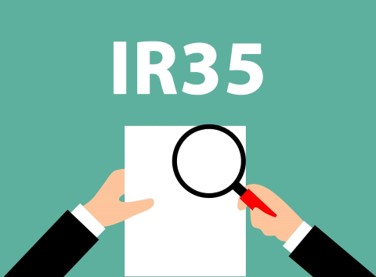Are You Ready For The New IR35?

The much-anticipated changes to the “off-payroll working” rules (often referred to as “IR35”) will finally take effect from 6 April 2021. The introduction of the changes was deferred by a year as a result of the COVID pandemic, and we see that many clients have used the additional year to prepare thoroughly for the new regime. Some businesses may be less prepared, so we set out here a reminder of the steps that need to be taken before 6 April 2021.
The main effect of the changes is that businesses (unless they are “small” within the UK corporate law definition) that engage workers through a chain that includes a personal service company of the worker will now be responsible for deciding whether, on the terms of the engagement, employment taxes need to be collected before the fee for the work is paid to the personal service company. In the past, liability to employment taxes was assessed by the worker’s personal service company, so this was not something businesses had to consider. The detail of the changes is substantially as we reported back in 2019 (https://jurit.com/ir35-new-hmrc-consultation-on-reform-of-off-payroll-tax-rules/).
Before 6 April 2021, businesses should:
– Audit their supply chains to identify contractors who are potentially within the new rules and determine whether there is an obligation to assess their IR35 status.
– For each of those contractors, gather detailed information about the engagement and decide whether it is caught by the new rules. HMRC’s online “CEST” tool may assist with triage, but in complex cases professional advice is likely to be needed.
– For engagements that are caught, consider whether revised contractual documents and/or price negotiations are required.
– Prepare and issue “status determination statements” for each contractor who is potentially within the new rules, setting out what the business believes their IR35 status is and why.
– Where the engagement is assessed to be caught by IR35, identify the party in the labour chain responsible for making deductions. In some cases this will be the business and an appropriate process for making deductions will need to be put in place. In other cases there will be another UK party in the chain who is closer to the contractor’s personal service company which has this obligation, and the business’s obligations will be satisfied by supplying the status determination statement down the chain.
Failing to take those steps risks the business being liable for employment taxes on the fee paid for the contractor’s services, potentially (depending on the terms of the contracts under which the worker’s labour is provided) with no right of recovery. Also, if the process is not followed carefully there may be penalties and interest arising from unpaid tax (though HMRC has recently confirmed it will take a “light touch” approach to penalties during the first year the new rules are in operation).
This may be a very large exercise, depending on the number of contractors a business engages with. However, there remains a short window to take the steps necessary to comply with the new rules and we would be pleased to assist you further, at whatever stage of the process you now find yourself.
Please note this paper is intended to provide general information and knowledge about legal developments and topics which may be of interest to readers. It is not a comprehensive analysis of law nor does it provide specific legal advice. Advice on the specific circumstances of a matter should be sought.








